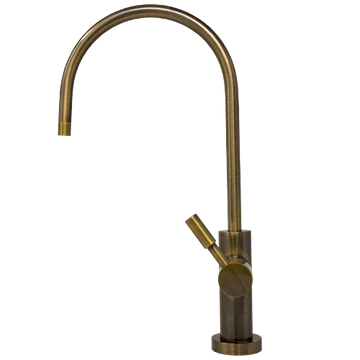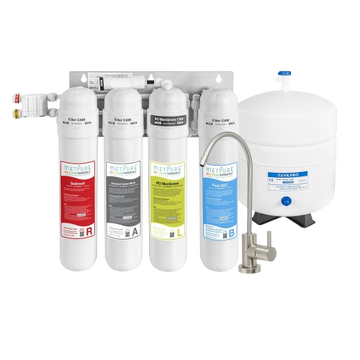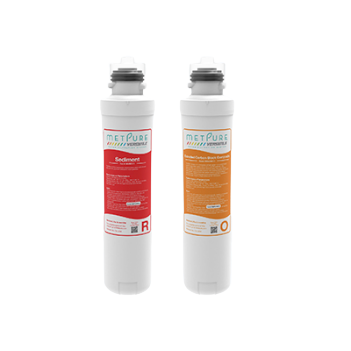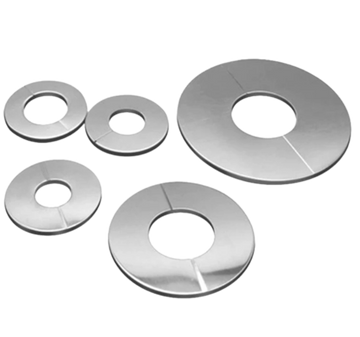Water heaters are essential to our everyday existence since they offer hot water for showers, washing, laundry, and other uses while frequently running silently in the background. Untreated water, including sediment, minerals, and other contaminants, can seriously harm water heaters, resulting in malfunctions, reduced performance, and a shortened lifespan.
This article's main goal is to highlight a frequently overlooked Water heater filters are the answer. As protectors, these filters shield water heaters from contaminants' harmful effects. This article will explore the uses and advantages of water heater filters to emphasize how important water quality is to maintaining these vital household appliances' functionality, longevity, and performance. Knowing why your water heater needs a filter, whether you own the property or rent it, could significantly impact your daily comfort and long-term financial savings. So, let's examine the significance of these sometimes-disregarded gadgets and learn about their revolutionary advantages.
II. Comprehending Problems with Water Quality
A. Water Impurity Explanation:
Thought to be clean and pure, water frequently contains a variety of contaminants. Invisible to human sight. The water supply may contain sediment, pollutants, and minerals like magnesium and calcium. Sand and silt are examples of deposition that gets into pipes and water tanks, settles at the bottom, and eventually causes problems. Minerals, sometimes called "hard water," lead to scale development and deposit deposits that cover the water heater's heating elements and decrease efficiency. Chemical impurities like sulfur or chlorine can contaminate food and harm heating parts.
B. Water Heater Impact:
Water heaters have serious difficulties as a result of these contaminants. The sediment buildup at the tank's bottom is an insulating layer, decreasing efficiency and heat transfer. Hard water's mineral content results in scale development, which limits water flow, uses more energy, and results in an early heater breakdown. Furthermore, interior components may deteriorate due to chemical impurities, resulting in leaks or failures.
C. Hot Water Filter's Significance:
To tackle these problems, installing a water heater filter becomes essential. Before the water reaches the heater, silt, minerals, and pollutants are efficiently removed by water filtration systems. By doing this, they lessen the negative impacts of contaminants, maintaining the heater's effectiveness, extending its lifespan, and guaranteeing that the whole household receives cleaner, safer water. These filters are critical in preserving the heater's integrity and ensuring peak performance.
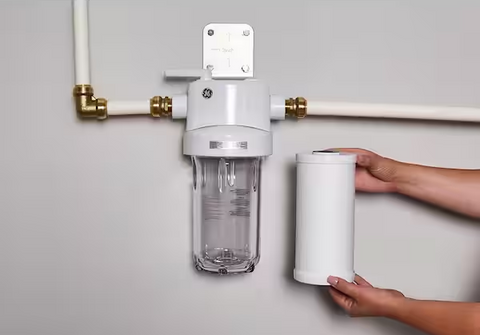
The advantages of using a filter for water heater
A. Enhanced Effectiveness:
Enhancing the overall efficiency of the heating system is made possible in large part by water heater filters. These filters reduce the insulating effect by capturing silt and debris and keeping them from settling at the bottom of the tank. Better heat transfer makes it possible for the heater to run more efficiently because less energy is needed to heat the water to the proper temperature. Filtered water thus encourages increased energy efficiency and lowers utility costs related to heating water.
B. Extended Living:
Scale accumulation on the water heater's heating components is caused by minerals in the water, especially in hard water locations. On the other hand, scale inhibitor-equipped water heater filters prevent the formation of these mineral deposits. These filters successfully extend the life of the water heater by preventing the buildup of scale, as the lack of This lessens the risk of malfunctions or failures by reducing wear and tear on the heater's components.
C. Water Quality:
Filters not only protect the water heater but also have a big impact on the quality of water provided to the entire household. Cleaner, safer water is ensured by removing silt, minerals, and contaminants for use in cooking, laundry, and other domestic activities. This filtered water improves the water quality for drinking and bathing, promoting general health and wellbeing and averting possible harm to plumbing fixtures and appliances.
The advantages of using filters for water heaters
A. Increased Effectiveness:
Water heater filters are essential for maximizing the system's effectiveness that heats your water. These filters stop contaminants from building inside the water heater tank by efficiently capturing silt, debris, and particle matter. By preventing silt buildup, this proactive filtration improves the efficiency of the heating element. Thus, less energy is used by the heater to heat the water, improving energy efficiency and possibly lowering utility bills.
B. Longer Life Expectancy:
Scale inhibitor equipped water heater filters reduce the amount of mineral deposits that build in the system. These filters keep mineral deposits, also called scale, from building up inside the tank and on heating components in areas with hard water. This preventive action greatly reduces the heater's component wear and tear, increasing the heater's operating lifespan.
IV. Maintenance and Cost Reductions
Lower Energy Expenses:
By raising the heating system's overall efficiency, a water heater filter system greatly reduces operating costs. These filters guarantee that the heater runs as efficiently as possible, using less energy to heat the water by preventing silt accumulation and scale formation. Households may consequently consume less energy, which eventually results in cheaper utility bills.
B. Lower Repair Expenses:
The possible harm that silt, minerals, and contaminants may cause is lessened when water heater filters are used. Filters reduce the need for repairs and maintenance by minimizing the buildup of scale and lessening the strain on heating elements. This preventive maintenance strategy results in lower repair expenses and fewer component replacements.
Summing Up
In conclusion, water heating filtration systems are a smart investment for your home. These filters work quietly but effectively, protecting your water heater from harmful sediment and minerals. By keeping your heater free from build up, they help it run more efficiently, lowering your energy bills and reducing the need for repairs. Not only do they extend the lifespan of your heater, but they also ensure cleaner, better quality water throughout your home. Investing in a water heater filter means protecting your appliance and saving money in the long run while enjoying better water for your daily needs.











